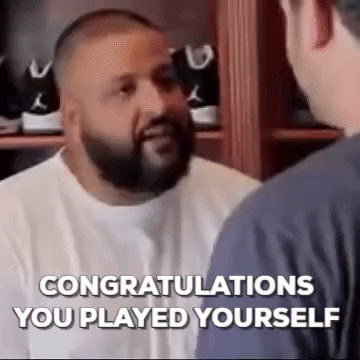
Anyone who’s never been reluctant — scared, even — to ask for help when you need it can just cruise on past this post. For anyone who’s not a filthy liar, though, I’m here to help you out. Even if you didn’t come out and ask me to.
(And of course I don’t mean literally how to ask for help — the mechanics of that are pretty straightforward. It’s the part where you convince yourself, arm yourself, get up the courage to do the asking for the help that’s a real challenge.)
Because asking for help can be a scary thing to do, particularly early in your career. It’s making yourself vulnerable. It’s saying, “Hey, you asked me to do this thing, and I find myself unable to do it under my own power,” whether it’s a matter of timing or skillset or clarity of instructions. When you want to appear competent and capable, asking for help feels like an admission that you actually aren’t competent and capable, so you’d rather struggle through the process and hope to be able to present something competent and capable at the end.
Except you don’t. You end up presenting something that doesn’t appear competent or capable, because you were working without professional capabilities that were necessary to do a good job. You presented work that was shoddy, because you had to rush through it. You presented something that didn’t get the job done, because you didn’t understand the instructions to be able to follow them. You missed your deadline, because you were overwhelmed or overburdened and never managed to catch up. In your attempt to look like you were up for the job, you provided evidence that you’re not up for the job.

Okay, Khaled, that was a little harsh. But, I mean, it’s not entirely inaccurate. And if you have that mindset — if you’re afraid to ask for help because you’re afraid of looking bad in front of someone — I have nothing but sympathy, because I’ve definitely been there myself, back before I became the aggressively-to-a-fault confident creative that I am today. I care, and I’m here to, y’know, help.
Asking for help is a show of maturity and commitment to professional development.
It’s time for a mindset shift. Because asking for help isn’t a sign of failure — it’s a sign that you want to be better. You want to expand your skillset. You want to provide high-quality work that gets the job done. You want to be able to give the work all the time and attention it warrants, and to hand it in when it’s needed.
Wanting to be a better creative and to provide great work on time is the sign of a mature, professional, capable team member.
And anyone who’s going to think less of you for wanting those things is a dick, and shouldn’t be in a supervisory position, and I’m just gonna say it: Either they need to go or you do. (Easier said than done, obviously, particularly when you’re new to the industry and don’t yet have a lot of options or professional currency, but at least you can recognize that that’s the situation, to help you make decisions when you’re in a position to do so.)
Being a manager and being a team member both require you to want to help, to care about what your colleagues need and want and where they want to be. Your part in that means getting to a place where you can open up and ask for the resources you need to give them those things. Want to be better? Want to be more professional? Want to be more helpful? Asking for help is your way to do that — it’s an asset, not a detriment.
And here’s a note to people in supervisory positions.
First off: If you already have that positive mindset about asking for help, congratulations! That’s one sign of a good leader, and I’m sure your direct reports appreciate it.
Alternately: Don’t be that dick I was talking about above.
If a person comes to you for help, with concerns, with overburdening, and you take that as a sign that they aren’t capable of doing the job they’ve been assigned, you are being that dick. And it’s time to fix your mindset.
A creative who comes to you for help is demonstrating maturity and professionalism. And they’re demonstrating trust in you, because even if they have that positive mindset, there’s still vulnerability there. Congratulations, you’ve got a good creative, and if you can dig up some humility and take some inspiration from them, you can learn to be a better manager. It’s an area where you can become better. If you’re not sure how to do that, ask your own supervisor for help, and if you’re not sure how to do that, I’ve got some good news for you.
HALP.
Learning to ask for help is just another skill to add to your toolkit as a professional. And unlike skills like Illustrator or PHP or sorting out affect and effect (which apparently is harder than you’d think), this is one you can work on entirely in your brain. A little mindfulness, a little self-talk, maybe a hair tie on your wrist to snap whenever you find yourself trapped in your old mindset, and bam, you’ve gotten to a mental space where you can ask for help in getting the rest of the way.
(HAHAHA obviously nothing is actually that simple. But it’s not impossible. It just takes work.)
And here’s one last thing to think about on your journey to becoming a help-asker-for: How do you react when someone else asks you for help? Do you think, “Wow, what an utter incompetent dope,” or do you think, “How cool, an opportunity to make someone’s life better”? Extend to yourself the same grace you extend to others who come to you with their struggles. You’re cool. You deserve it.
Best of luck. And if you’re still having trouble getting there? Feel free to practice on me. Shoot me an email or DM me on Facebook or Twitter or whatever. If there’s anyone who understands feeling incompetent and having to ask someone else for help and being afraid to do that, it’s this chick right here.

